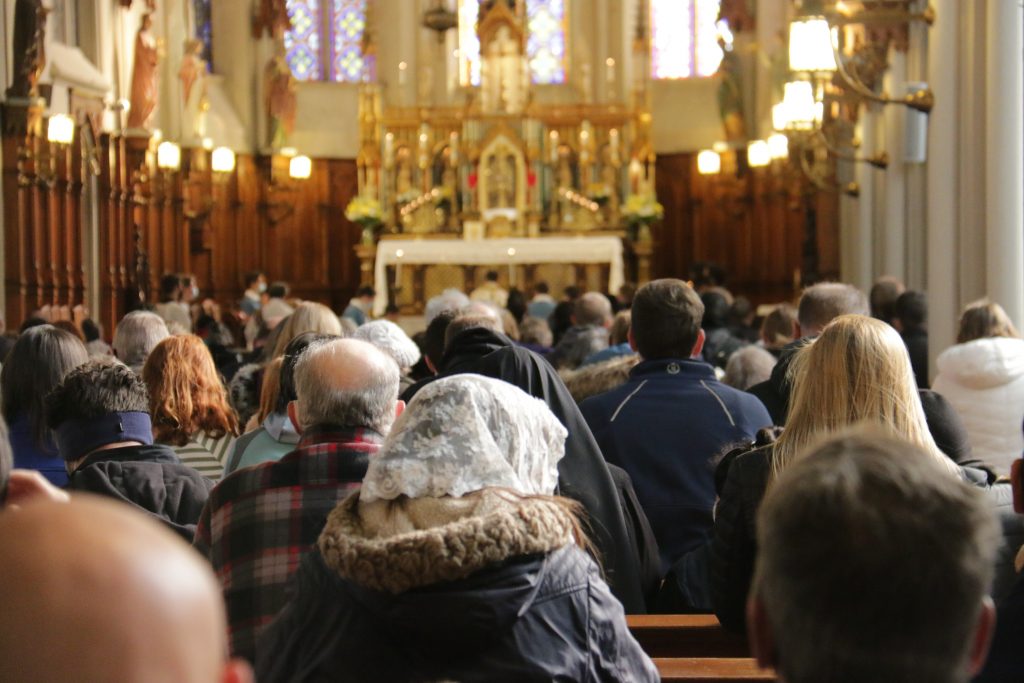A long and divisive election season is winding down. As Catholics, we know that no party or candidate ever fully represents the Church’s vision of the human person and human society. To live in our secular society as a person of faith is to be always dissatisfied with the limitations of our politics.
Jesus told us that his kingdom was not of this world. His first disciples described themselves as exiles and pilgrims on the earth.
“For here we have no lasting city, but we seek the city which is to come,” we read in the Letter to the Hebrews. St. Paul said that our true citizenship is in heaven.
This is true. We can never forget it. Politics today has become for many people a substitute for religious faith. But it cannot be that way with us.
The truth is that we are here for a time. When that time passes away, we will meet Our Lord. And in the evening of our lives, as the saints tell us, we will be judged by our love.
This does not mean that we abandon this world or withdraw from participating in the workings of our society.
We are called to follow Jesus Christ and to live according to his commandments and teachings. Just living our faith has deep political and social implications.
To live as a Christian means being guided in all things by love, by a sincere desire to see that our neighbors are treated as we want to be treated, with dignity and respect.
Our faith is deeply personal. But it is never meant to be only a matter of our private beliefs and behavior.
As Christians, we share in Jesus’ mission. We are called to be apostles, missionary disciples who bring the love of Jesus to our neighbors and seek to build his kingdom on earth.
The Gospel tells us that God is the Father of all peoples and that every human life is precious and loved by God and that we belong to one another, that we are meant to live together as one human family.
Jesus taught us that every human life is sacred, because God created every person out of love and in his image. The whole Gospel depends on this truth — that God so loved each and every person, that he sent his only Son to die for our sake, so that we might live.
These are religious claims. But if we accept and believe these claims, they will change how we live, and how we think about what makes a good society.
For the Church, governments and economies, societies, and cultures should have only one purpose — to promote the dignity and flourishing of the human person.
This is why the Church believes that the foundation of justice in society begins with protecting and promoting the sanctity of all human life, from conception to natural death.
The Church considers marriage and family to be sacred, because these natural institutions are the “cradle” from which life proceeds, and the foundation of every human community.
The Church also believes that government must protect freedom of religion and conscience as the first freedom. People must be free to believe and to order their lives according to their beliefs.
From these foundations — the sanctity of the human person, the sanctity of marriage and the family, the right to conscience and freedom — the Church’s social doctrine builds.
As Catholics, we are called to work for a society where the human person is loved and protected, especially the weakest and most vulnerable human lives. We want a society where all men and women are treated as children of God, with equality, liberty, and justice for all.
Catholics must always be engaged in the great struggles in our society — over abortion, euthanasia, the environment; over gender and the family; over racism, criminal justice, immigration, and religious liberty.
These are not only political “issues.” They are moral and religious. They go to the heart of the matter: Who is God and why has he made us? What are his intentions for the human person, for the world?
We have no lasting city, as the Scriptures say. But we are each called to make our own contribution to building up God’s kingdom on earth. We do that by keeping our eyes on heaven, and trying to live as saints on earth.
Let us rededicate ourselves to our vocation to holiness — to loving as Jesus loved, and serving God and one another in our daily lives.
Pray for me this week, and I will pray for you.
And let us ask the Blessed Virgin Mary, patroness of this great nation, to intercede for us. May she help us to work together to fulfill the beautiful vision of America’s missionaries and founders — one nation under God, where the sanctity of every human life is defended and freedom of conscience and religion are guaranteed.

